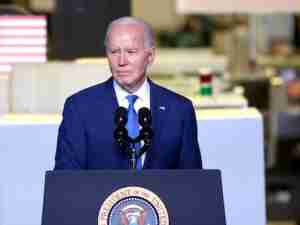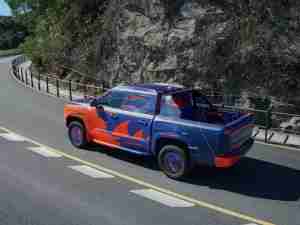When a dispute over the East
China Sea flared up between China and
Japan two years ago, graduate student Wei Hanyu ditched her Shiseido Co Ltd beauty products in protest, joining scores of Chinese consumers in a boycott of Japanese brands.
Wei, now 23, said she currently uses a face cream from Aupres, a brand she thought was Chinese or Korean, but which she recently found out is actually Japanese. Aupres is one of Shiseido's China-specific brands and the packages carry the parent company's name only in small print.
"Its advertisements left an impression on me that it's a brand designed for young people in cities, similar to some Korean brands," said Wei.
Several executives at Japanese firms operating in
China say there is little they can do to counter the geopolitical fallout, but companies with products that Chinese consumers don't immediately identify as being Japanese have fared better.
Shiseido says it does not intentionally hide it name, but the discreet branding of its China-only cosmetics appears to be the way to go for Japanese companies seeking to win over consumers in the world's second-largest
economy.
Shiseido spokesman Shotaro Nagai said sales of Aupres and its other China-specific brand Urara have grown faster than its premium own-brand line. He did not disclose sales figures.
"What's important in the eyes of the consumer is whether the brand image is that of high-quality and trust," said Toru Furuya, a Tokyo-based executive strategy director at brand consultancy Interbrand.
Ties between
Japan and China have been strained by a territorial row over a group of islands, known as the Senkaku islands in Japan and the Diaoyu islands in China. Every time tensions flare, Japanese manufacturers of everything from cars to
electronics see slowing sales in China.
Better Quality
Another Japanese company that is winning over Chinese customers is Fast Retailing Co Ltd, which is expanding its casual clothing Uniqlo brand in China's vast interior, a region where nationalist sentiments traditionally run high, but where Uniqlo is not immediately identified as being Japanese.
Unlike consumers in big cities like Beijing and Shanghai, residents of China's less-developed cities tend to be less exposed to global brands and less aware of where they come from.
"One of the reasons for our success in China is that with growing recognition for Uniqlo as a high quality brand, we are targeting middle-income consumers in China and provide identical product mix at Uniqlo China and Japan," the company said in a statement emailed to Reuters.
The company does not disclose sales figure by region, but the statement said it had seen "almost no impact" from the dispute between Japan and China.
Other Japanese consumer and car companies were hit hard by the boycott that began after the 2012 protests. Most Japanese
retail firms, such as Sony Corp and Panasonic Corp , do not disclose sales figures for China, but some executives say sales have yet to fully recover.
Some Japanese automakers saw sales fall by around half. Nissan Motor Co Ltd, the automaker most exposed to the world's largest car market, also cut its
earnings forecast by 20 percent for the year ended March 2013.
For many Chinese, the saving grace of Japanese products is their quality. China's consumer goods sector has been beset with safety scandals ranging from tainted milk to fake parts, while Japanese manufacturing standards are seen as superior.
The geopolitics, however, remain a drag.
"I don't boycott Japanese products intentionally because their products are good. You can't deny this," said Chen Huizhe, a 51-year-old engineer at a
steel company from the eastern city of Hangzhou. "But if two products are equally good, then I prefer the non-Japanese one. (Reuters)

